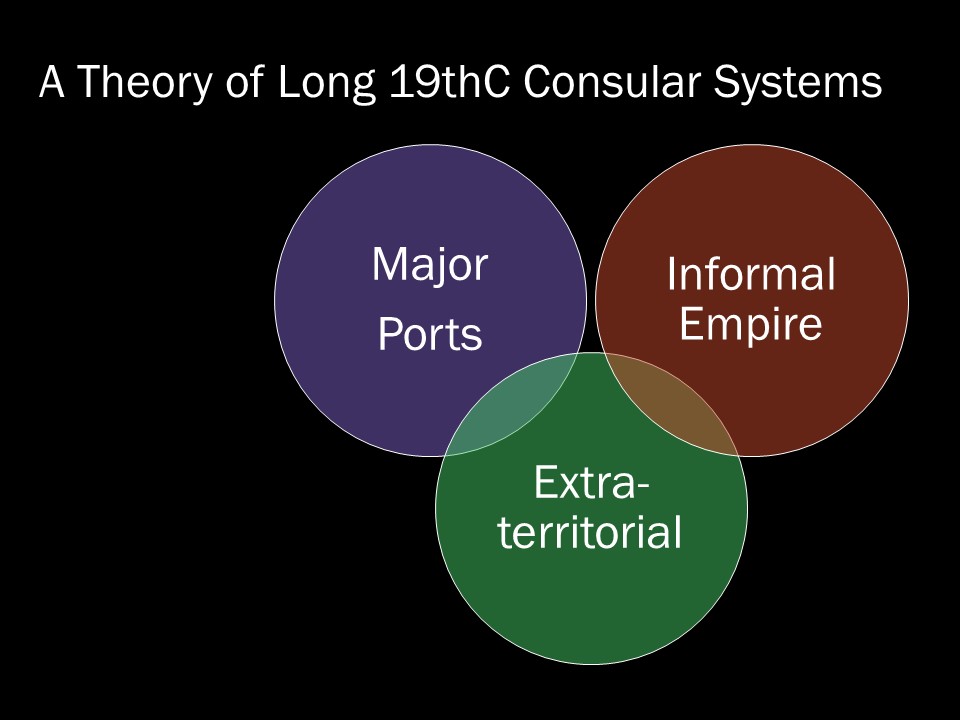In late February 2019, I received a most welcome email from Prof. Holly Case of Brown University, who was exploring the possibility of putting together a day-long conference/workshop on consuls to be held … in May 2019. Those of you in US academia will know that this is an exceptionally short timeline for putting an event like this together. I was enthusiastic about participating, and so were many other people. It turned out to be a fantastic conference bringing together people working on a range of countries’ consular services, often with a particular interest in consular officials operating in the Ottoman Empire.
My presentation, titled “Complicated, but Crucial … and Exceptional? Sovereignty and State Building in the US Consular Service,” was basically a brief summary of my chapter in Crossing Empires, showing the growth of the service over time and the post-Civil War expansion into the British Empire before offering my theory of three co-existing consular services, stressing the importance of consular activities to the functioning of the US government more broadly, and providing some comparative international data.
